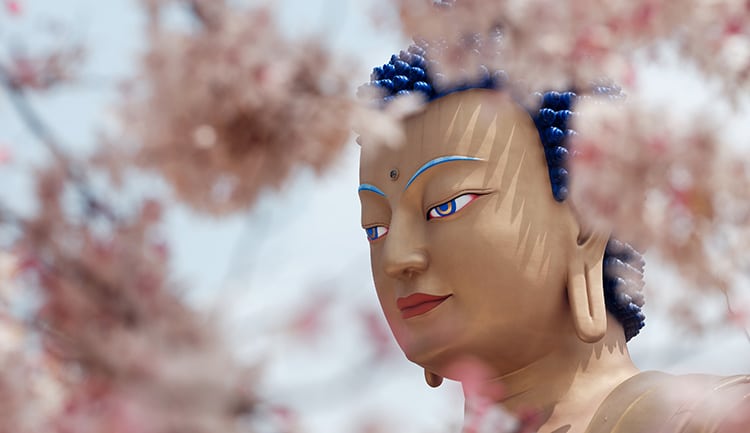Meditation and Stress Prevention
Category: Health and Meditation | Mind Trainer Articles | Mindfulness at Work | Popular | Stress and Anxiety

Preventing stress with regular meditation practice
Did you know that meditation doesn’t only relieve stress? Science has shown that meditation prevents stress as well! It’s a practice that we can include in our lives so that whenever adversity and challenges arise—and they will arise whether we want them to or not—we can cope with them in a more skillful way.
For meditation to be truly effective in preventing stress, we need to practice on a regular basis—to train the muscle of the mind just as we train the muscles of the body. Since we’re creating new habits through our practice, regularity is extremely important. For meditation to become part of our lives, we need to create conditions that support our practice. That’s how meditation and prevention go hand in hand.
As meditation becomes a more natural part of our lives, we’re creating a bigger space to welcome whatever happens, including situations that are stressful and may be beyond our control. Along with the peace and groundedness we experience when we’re engaged in our formal practice routine, meditation also informs our daily lives, including our ability to manage our time in a balanced way. We see clearly how this time we set aside for ourselves not only prevents us from falling into our old habit of reacting to challenges with stress, but it also contributes to a more peaceful and satisfying life and a deeper sense of well-being overall. And at the end of the day, isn’t that what we’re all looking for?
Some people think that setting time aside to meditate is self-centered, but it isn’t. Why? Because as we put effort into focusing and training the mind, we learn that it’s possible to distance ourselves from thoughts and emotions that surface. And this increases our emotional IQ, which in turn improves our ability to respond to the words and needs of others with more attention and care.
One well-known source of stress is relationships; at the same time, relationships can help with how to buffer stress. Relationships are an essential part of our lives. If we have healthy connections and adequate social support, whenever adversity occurs, we will be better equipped to cope with the stress that accompanies it. And when we’re more in harmony with those around us, we have fewer sources of stress.
Our commitment to meditation can improve our ability to maintain healthy relationships. The more aware we are of our own feelings, emotions and needs, the more aware we will be of what the people around us need and feel. We become less caught up in our own stories and more available for others—more available to understand what they’re going through and how we can help them. Naturally, this will improve our relationships. Meditation doesn’t just settle the mind; it opens the heart.
Another powerful antidote to stress is kindness. When we practice meditation, the attitude we have towards ourselves is a kind attitude. We make friends with ourselves because we are kindly disposed towards whatever happens. This benevolence towards ourselves is a buffer to a stress because any beliefs we may harbor of never being enough, any patterns of perfectionism or other self-berating habits will find an obstacle—somehow this kindness will disrupt and become an antidote to those beliefs.
Self-compassion, self-forgiveness, making friends with ourselves are qualities we need to nurture. These qualities are naturally cultivated when we meditate, and this inspires us to cultivate them in our daily lives. So whenever stress happens, we can try to be kind to ourselves instead of having a negative response and wanting to get rid of the stress or the symptoms. Instead of being upset about insomnia or anxiety or other signs of stress, instead of rejecting them, we may want to accept them as we learn to do when we’re meditating and experience physical discomfort, or when a negative thought comes along. We see that we can be upset about it and reject it, or we can find equanimity and say to ourselves, well, that’s what I’m experiencing. It will go away sooner or later.
That knowledge of impermanence is central to our acceptance of adverse circumstances and unwelcome emotions. Impermanence is a core value we can reflect upon. Things change all the time. Painful experiences, thoughts, emotions, and stress will eventually vanish. Knowing this, we can welcome whatever happens with equanimity and confidence.
In these ways, meditation can help prevent stress from getting the best of us. And we can make use of the best of us to live as genuine human beings, available and helpful to others.
This article is derived from Mind Talks by Maria Camara, PhD, our featured teacher in our Working with Stress online meditation course.







